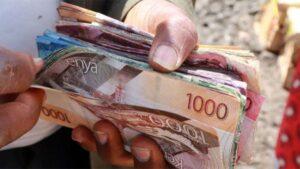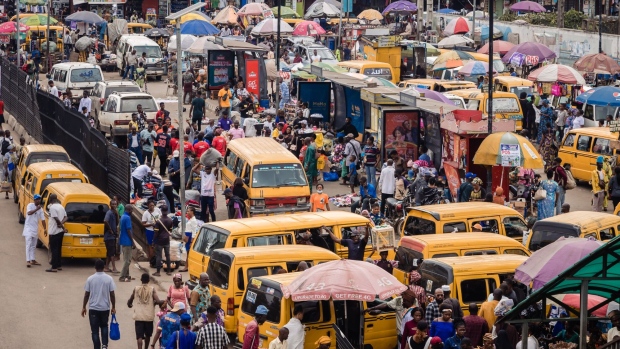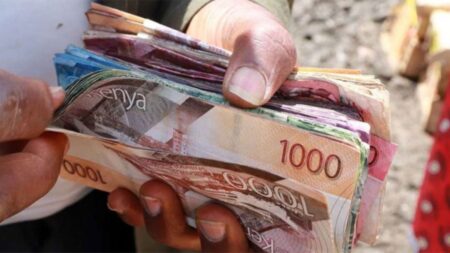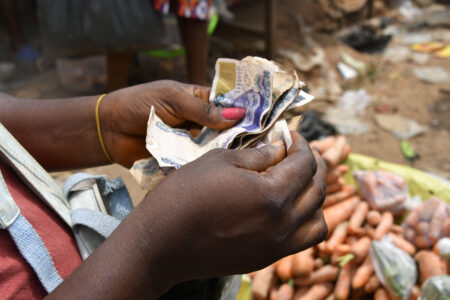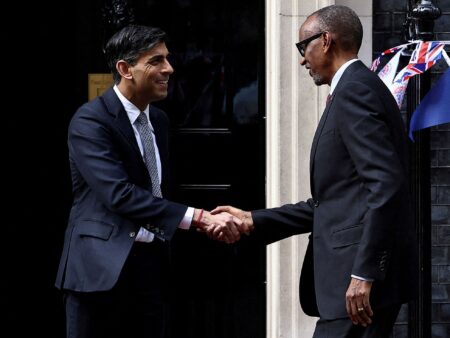- Nigeria’s cost of living crisis has been the worst in decades, exacerbated by worsening food insecurity and record inflation.
- The lack of enough resources has led to insecurity in Nigeria as people fight for scarce resources and food.
- In response to Nigeria’s cost of living crisis, Tinubu announced a state of emergency in July and intends to begin grain distribution in the coming weeks.
Tinubu’s Reforms worsen Nigeria’s cost of living crisis
Nigeria, Africa’s largest economy, is grappling with the worst cost of living crisis in decades and a worsening food security situation. A significant portion of the population is experiencing extreme food insecurity. After assuming power in May 2023, Bola Tinubu’s administration adopted bold but unpopular reforms that further strained the already-battered economy.
Nigeria imports food and fuel and was buffeted by rising commodity prices due to a glim global economic situation in the last two years. President Tinubu hoped his policies would improve government finances, restore credibility with investors, and jumpstart Nigeria’s economy.
However, inflation has peaked at its highest level in three decades, and the naira has slumped to record lows, which has been pressured by extreme dollar shortages. Consequently, food prices, cooking gas, medication, fuel, and public transport have shot up, squeezing household budgets.
Growing protests and insecurity
In a few months, the cost of certain vital food essentials doubled. The lack of enough resources has led to insecurity in Nigeria as people fight for scarce resources and food. Trucks carrying pasta and rice are being taken over along rural routes. Major cities have seen protests, and soldiers are now on duty to stop desperate residents from ransacking food stores.
Instability in Africa’s largest nation is mainly the result of President Bola Tinubu’s aggressive reforms, which included the removal of an expensive but popular oil and gas subsidy and easing of foreign exchange controls soon after he took office in May.
Nigerians have suffered dramatically in the short term despite global appreciation for the moves, which they considered long deserved. Millions of poor people were thrown into dire circumstances in January when the naira fell by 70 per cent, and inflation rose to a level not seen in 28 years.
The Food and Agriculture Organization of the United Nations has estimated that over 26 million people, or 14% of the population, will face food insecurity this year. Food expenses account for more than half of the average household’s income in Nigeria.
Although food has always been pricey, the situation has gotten worse due to recent price rises. A further factor driving up food prices is the lack of security, as seen by the kidnapping of at least 287 schoolchildren in northern Nigeria.
Read Also: Nigeria exposed to worse economic crisis – IMF
The government is moving to rescue the situation
The government is making an effort to react. The central bank increased interest rates by 400 basis points to 22.75 per cent to reduce pricing pressure and strengthen the currency.
Strong supporters of removing fuel subsidies and foreign exchange controls, the International Monetary Fund demanded urgent action to address food insecurity, even as it applauded the passage of an “effective and well-targeted” social protection program.
In response to Nigeria’s cost of living crisis, Tinubu announced a state of emergency in July and intends to begin grain distribution in the coming weeks. Additionally, the government will restart a program started by the previous administration that was put on hold due to allegations of corruption by providing roughly 12 million Nigerian households with a temporary payment of 25,000 naira per month.
The government is implementing several policies to increase food production. There will be plenty of food in Nigeria within the next six to nine months when harvest season arrives, and commodities will become very cheap and affordable. Prices are also being lowered by the campaign against merchants who hoard goods to go on price binges, stated Temitope Ajayi, a senior presidential aide.
Desperation has resulted in attacks on food trucks and looting of emergency government supplies of essentials. Trucking companies fear that if consumers delay shipping products, they may lose revenue.
The high cost of living also affects the standard of life of wealthy people. It is portrayed by shops in the upmarket where owners and buyers constantly complain about the steady rise of commodities and services offered. This situation forces people to forego some essential things they are used to.
The worst is still to come. Analysts predict inflation to peak in the mid-30s during the year’s second half, up from 29.9 per cent in January. When the impacts of the naira’s most recent decline versus the dollar last month become apparent, more price increases are anticipated.

